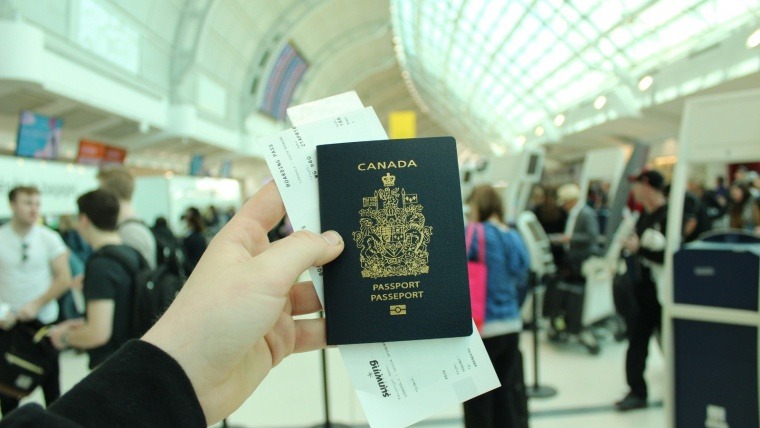Francophone Immigration to Canada (Outside Quebec): A Quick Guide to the FCIP Initiative

Have you heard the latest?
If you speak French fluently and are looking at ways to shift to Canada (outside Quebec), then we have some good news for you.
Canada is actively inviting French-speaking immigrants to support its bilingual communities while also meeting specific labour market needs in regions outside Quebec. This guide provides you with information on the various pathways and requirements for prospective immigrants.
Programs & Pathways
In 2025, Canada aims to admit 10,920 newcomers through pilot programs, including the FCIP, in its bid to support official language minority communities.
- Express Entry System: This system is aimed at attracting skilled workers. However, French speakers get up to 50 extra points, improving their chances of being invited to apply for permanent residence. If you speak both French and English proficiently, you get an additional 25 points.
- Francophone Mobility Program: Allows French speakers to work in Canada (outside Quebec) without a Labour Market Impact Assessment (LMIA). A valid job offer in a skilled occupation is required. In its favour, the program does not impose restrictions based on nationality or age, making it accessible to a wide range of qualified candidates.
- Francophone Community Immigration Pilot (FCIP): Launched in 2024, this is a five-year federal initiative to attract French-speaking immigrants to specific communities outside Quebec. This program replaces part of the Rural and Northern Immigration Pilot and focuses specifically on strengthening Francophone communities across Canada.
FCIP Essentials
Let’s get into a bit more detail about the FCIP program.
The stated purpose of this initiative is to strengthen Francophone culture, address job shortages, and support economic growth in Francophone communities.
To qualify under this program, you will need the following:
- Valid temporary resident status: Applicants must already be legally residing in Canada with proper documentation at the time of application.
- Language proficiency: Candidates must achieve NCLC level 5 or higher in French across all four skills (reading, writing, listening, speaking). The government accepts official language tests such as TEF Canada and TCF Canada as proof of proficiency.
- Work experience: Applicants need a minimum of one year of full-time work experience (or equivalent part-time) within the last three years. This experience must align with the National Occupational Classification (NOC) code associated with their job offer. Certain exemptions are available for nursing professionals and recent international graduates from designated Canadian institutions.
- Job offer: A full-time, non-seasonal position from a designated employer within a participating community is required. The position must provide stable employment and comply with provincial labour standards.
- Intention to reside: Candidates must demonstrate a genuine intention to establish themselves in the designated Francophone community where they will be employed.
- Sufficient funds: Applicants must provide proof of finances, equal to 50% of the Low-Income Cut-Off (LICO) for their family size. These funds must be readily available and not financed through debt obligations.

Employer Requirements
Employers participating in the FCIP are also required to meet strict criteria to ensure they provide appropriate support for newcomers:
Designated employers must be vetted by local economic development organisations to confirm their legitimacy and capacity. They must offer genuine job opportunities, provide settlement support, complete intercultural training, and meet labour standards.
Targeted Locations
Several provinces across Canada have designated Francophone communities that offer settlement services and job opportunities for French-speaking newcomers. Examples include:
- Ontario: Cornwall has established settlement services and employment opportunities in healthcare, education, and public administration.
- Nova Scotia: Clare provides a strong Acadian cultural environment with employment in fishing, tourism, and light manufacturing sectors.
- Manitoba: St. Boniface represents a historic Francophone district in Winnipeg with diverse employment opportunities and comprehensive settlement services.
- British Columbia: Prince George offers positions in resource industries, healthcare, and education within a growing Francophone community.
What are the Occupations You can Expect to Work In?
Data indicates that certain countries have higher success rates in Francophone immigration pathways. The first on the list is obviously France. Others include the Democratic Republic of Congo, Haiti, Cameroon and Morocco.
And what are the in-demand occupations, and how much can you expect to earn? While not exhaustive, this is a list of the top 10 career paths for you, along with the money you can reasonably expect to earn.
- Registered Nurse: $75,000 – $95,000 annually
- Essential in both urban and rural healthcare settings, though they are in particularly high demand in Ontario, New Brunswick, and Manitoba
- Early Childhood Educator: $38,000 – $55,000 annually
- Needed in Francophone daycares and schools, especially in minority-language communities
- Customer Service Representative: $40,000 – $50,000 annually
- Required by companies serving French-speaking clients – usually in Ontario, Alberta, and British Columbia
- Social Worker: $60,000 – $75,000 annually
- Crucial for healthcare, family services, and counselling. The bonus is that many of these positions are government-funded
- Information Systems Specialist: $75,000 – $100,000 annually
- In demand in tech hubs like Ottawa, Toronto, and Vancouver, which require professionals in systems analysis and cybersecurity
- Administrative Assistant: $42,000 – $55,000 annually
- Vital in government agencies, non-profits, and educational institutions to ensure effective bilingual communication and coordination
- Financial Advisor: $60,000 – $85,000 annually
- Sought by banks and investment firms for bilingual services across all major cities
- Truck Driver: $55,000 – $75,000 annually
- Needed across provinces with major transport routes, mostly in Manitoba and Saskatchewan
- Construction Supervisor: $70,000 – $90,000 annually
- Required for projects with multilingual teams for coordination and safety compliance
- University Lecturer/College Instructor: $80,000 – $110,000 annually
- Needed for French-language programs in fields like education, business, and health sciences
The Application Process
Francophone immigration outside Quebec is supported by federal and provincial legislation under the Immigration and Refugee Protection Act (IRPA).
The process is pretty straightforward, and the specific provisions for Francophone immigrants are a true indicator of Canada’s commitment to linguistic duality and economic integration of skilled workers.
Follow these steps to increase your chances of successful immigration through Express Entry.
- Create an Express Entry Profile: Candidates must create an online profile detailing their education, work experience, language skills, and other qualifications. The system assigns a Comprehensive Ranking System (CRS) score based on this information.
- Obtain Educational Credential Assessment (ECA): Foreign-educated applicants need an IRCC-approved assessment to verify their credentials are equivalent to Canadian standards.
- Complete Language Testing: Applicants demonstrate language proficiency in English (IELTS or CELPIP) and/or French (TEF Canada or TCF Canada). French testing is mandatory for certain Francophone pathways, while English testing enhances CRS scores.
- Secure a Job Offer (Optional but Beneficial): While not mandatory for all streams, a valid Canadian job offer can significantly increase CRS points. Some programs, like the Francophone Community Immigration Pilot (FCIP), require a job offer.
- Receive an Invitation to Apply (ITA): Candidates with competitive CRS scores are invited to apply for permanent residence through periodic draws. French-speaking candidates may benefit from dedicated draws with lower score thresholds.
- Submit Permanent Residence Application: After receiving an ITA, applicants have 60 to 90 days to submit a complete application, including all required documents and fees, and to pass medical, security, and background checks.
Job Offer Requirements for Francophone Applicants
- Job Offer Requirements:
- Francophone Community Immigration Pilot (FCIP): Requires a valid, full-time, non-seasonal job offer from a designated employer within a participating community.
- Express Entry French-Language Proficiency Category: Does not require a job offer. Candidates must demonstrate strong French proficiency (NCLC 7+) and meet CRS cut-offs to receive an ITA without employment.
- Provincial Nominee Programs (PNPs): Requirements vary by province; some French-targeted streams require a job offer, while others waive it based on eligibility criteria.
Wrapping Up
The Francophone Community Immigration Pilot (FCIP) is a special program to help French-speaking people move to Canada, outside Quebec. It supports Canada’s goal to keep both the French and English languages strong and to grow French-speaking communities.
To apply under the FCIP, you need a full-time job offer from an approved employer in a community that takes part in the program. French-speaking applicants have an added advantage over other applicants because the score needed to get an Invitation to Apply (ITA) is often lower in special French-language draws.
Some provinces, like Ontario and New Brunswick, have special programs just for French speakers, which can make it easier to get permanent residence. These programs also offer support like language training, help with housing, and other services to help newcomers and their families settle well in Canada.
To improve your chances of success, work on your French skills and learn about the communities that welcome Francophone immigrants. But we recommend consulting a licensed immigration consultant who knows about French-speaking immigration programs.




